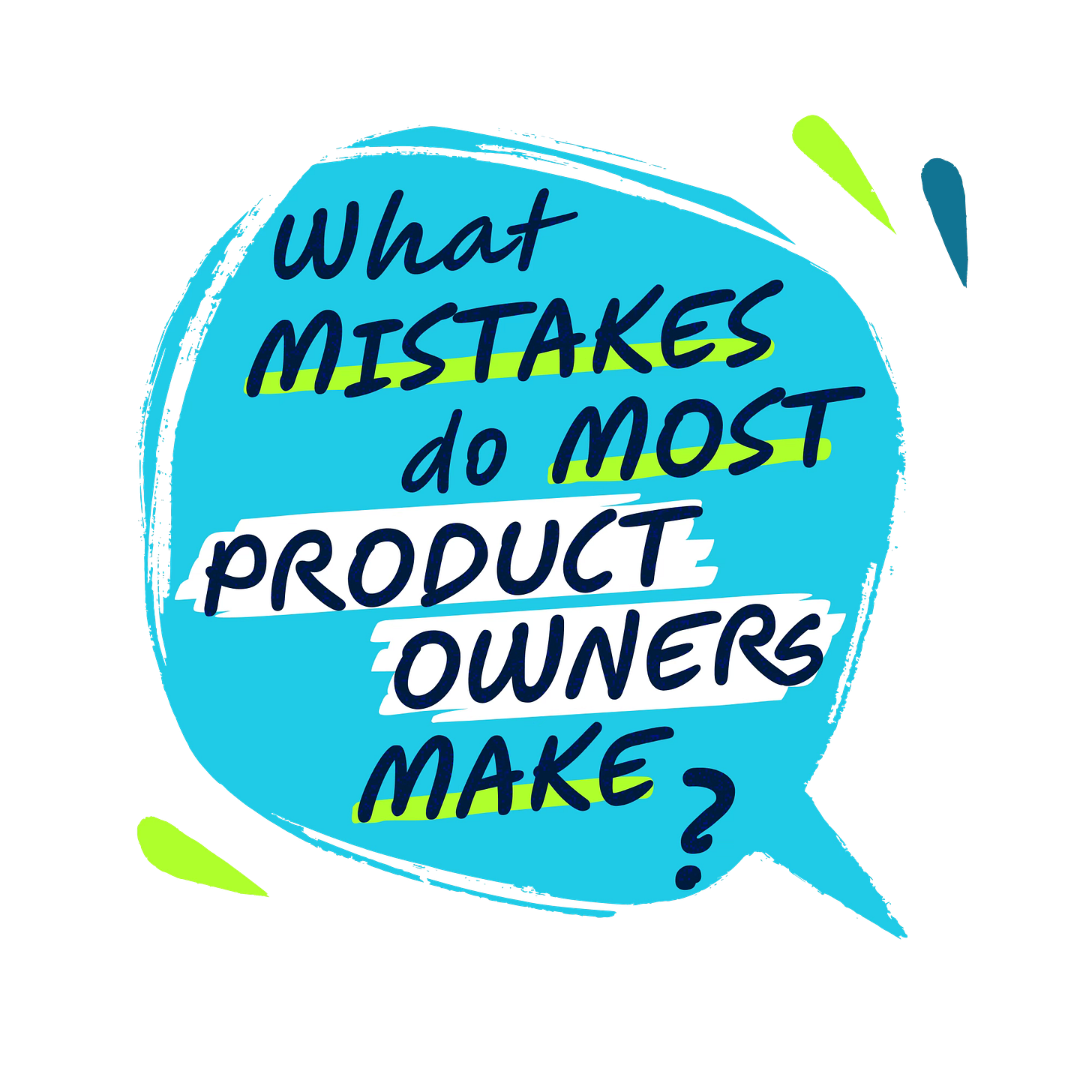What Mistakes Do Most Product Owners Make?
Being mindful of pitfalls, embracing change, maintaining proper communication with stakeholders and customers, and focusing on value when ordering the product backlog will help avoid common mistakes.
Despite Product Owners’ expertise and experience, they can encounter pitfalls affecting the product's ability to deliver value.
Recognising these potential missteps will help deal with challenges in the complex product development landscape.
Being open to adapting the product backlog and roadmap in response to new insights, market trends, and user feedback ensures the product remains relevant and valuable.
1. Inadequate Stakeholder Engagement:
Failing to involve stakeholders adequately throughout the development process can lead to misalignments between the team and the real stakeholders' needs and desires. Regular communication and feedback loops with stakeholders ensure the product delivers value as intended.
2. Neglecting User Feedback:
Value delivery requires validation. Overlooking the importance of user feedback is another pitfall. The product should ultimately serve the users' needs and preferences. Ignoring feedback can result in a technically perfect product that fails to resonate with its intended audience, thus limiting its success in the market.
3. Neglecting Quality:
Ignoring quality assurance processes can postpone or amplify problems, impacting user satisfaction and trust. Conducting thorough testing and quality checks ensures the product meets its intended usability and delivers a valuable user experience.
4. Ignoring Waste Reduction:
Waste can manifest in various forms, such as redundant processes, unnecessary work items, or excessive documentation. Identifying and eliminating these non-value-adding activities can streamline the development process, reduce costs, and accelerate time to market.
5. Underestimating Risks:
Risks can range from technical challenges and market changes to team constraints and stakeholder disagreements. Risks need to be identified as early as possible and addressed as soon as possible. Ignoring risks can lead to difficulties when navigating uncertainties.
6. Overreliance on Ad Hoc Work:
Leaning too heavily on ad hoc work and making decisions on the fly without considering the broader impact can lead to consistency and decrease product quality. While flexibility is essential, it should not come at the cost of team burnout, loss of focus on product vision and goal, and misalignment with business objectives.
A well-defined vision, goal and roadmap, in the form of the product backlog, are essential as they guide the team's efforts and decisions throughout development.
Without a clear vision, the team may lack direction, leading to inconsistencies in the product's work items and a final product that does not meet the stakeholders' and customers' expectations.
Ultimately, the product owner aims to deliver a product that meets and exceeds expectations.



